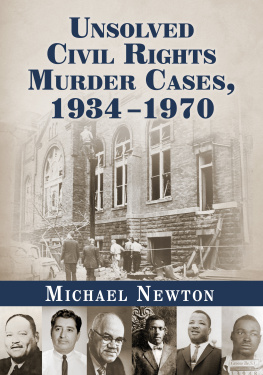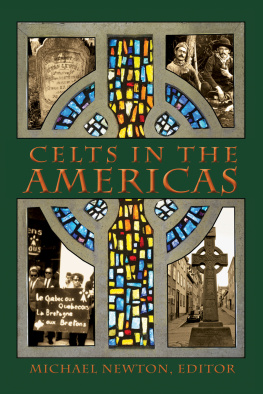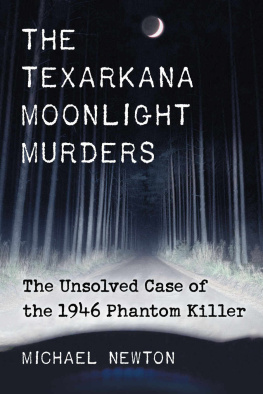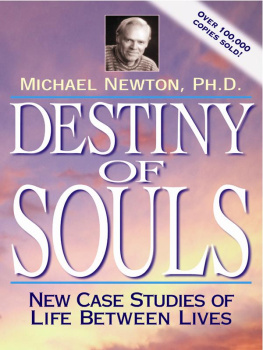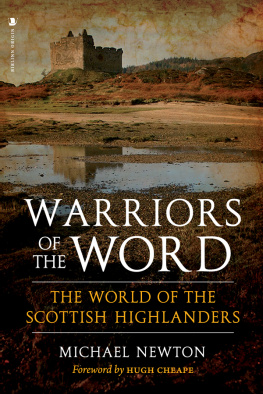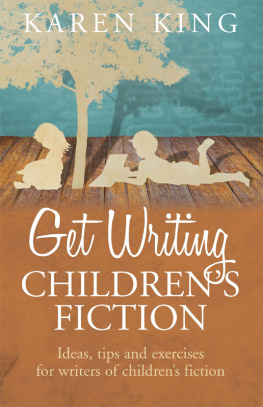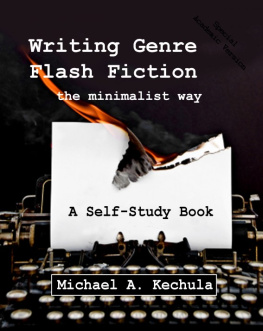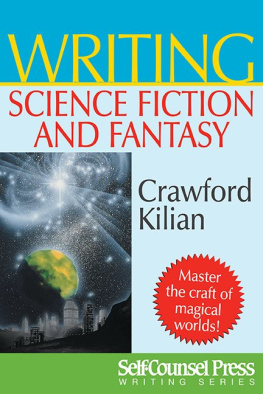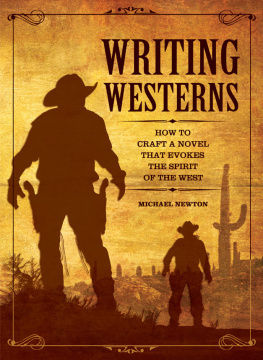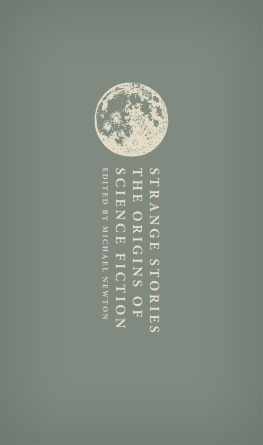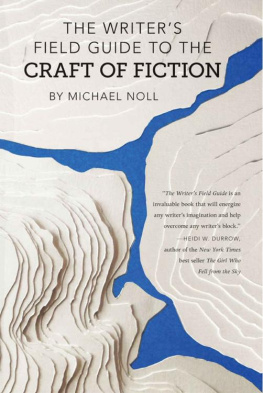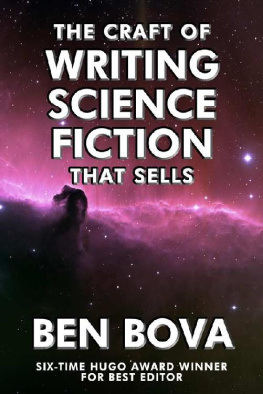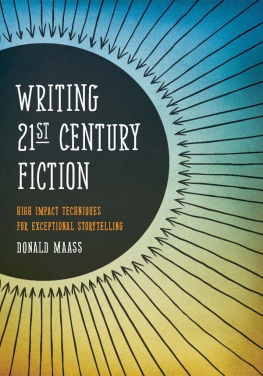1. Adventure WritersBorn or Made?
I became a novelist by accident.
Impossible, you say? Not quite.
I grew up in a family that encouraged reading, and Id always been a bookworm, though my taste in literature admittedly diverged from what my parents might have wished. We lived close by a liquor store that featured paperbacks and magazines, and by the time I got to elementary school I was already nurturing a fondness-cum-obsession for mens magazinesthe pulp variety, distinguished from the nudies by their covers, which depicted men of action locked in combat with assorted tigers, jaguars, pythons, and the scowling enemies of sundry foreign wars. My parents were concerned, to say the least, until my teacher (bless her!) offered up some sage advice. In essence, she suggested that my family might as well allow me to pursue my interests openly, instead of forcing me to go behind their backs and read the latest blood-and-guts extravaganza on the sly.
The rest, as someone said, is history.
The mens adventure magazines, Im sorry to report, have long since disappeared, but in due time I made the shift to full-length booksadventure, Westerns, horror, war or crimeand I discovered that I liked to write as well as read. I found real pleasure in the research papers that made other students cringe in school, and on occasion I suspected I might like to try a book someday. Not now , of course but someday .
In the early 1970s, two publishing events conspired to sneak up on my blind side and make someday a reality. A rash of fictional biographies were published, dealing with the lives of favorite characters from series fictionSherlock Holmes, James Bond, Doc Savage, Tarzanand Don Pendleton, a former-aerospace-technician-turned-adventure-writer, gave birth to the genre currently described by friend and foe alike as action/adventure.
I had followed Pendletons creation, Executioner Mack Bolan, through some twenty-five adventures when it suddenly occurred to me that hethe character, that isdeserved a separate and distinct biography, outside the series proper. Who should write it? Who, indeed!
Undaunted by the fact that I had published nothing, other than a few bizarre and ill-considered letters to the editor, I fired a query off to Pinnacle Books, then publishers of the Executioner series, putting my suggestion on the record. Time went by, and whimsy being what it is, I had forgotten all about the letter some months later, when I was astounded to receive a call from Pendleton himself. My query had laboriously made its way through channels to his desk, and while he wasnt overly excited by my premise, he was working on a concept that was vaguely similar. There might be room for a collaborator in the deal, if I could send along some clippings of my published work.
Blind panic. Published work! The kind that people read !
Incredibly, Don didnt laugh or slam the phone down when he learned that he was talking to a hapless would-be writer. He consented to review some articles which had been gleefully rejected by a string of editors, and he liked my style enough to grant me an audition for his latest project. The result was publication of my first successful work, as well as an apprenticeship of sorts, which taught me more about my chosen craft than any writing class could possibly convey.
My maiden voyage into print consisted of a chapter in The Executioners War Book (Pinnacle, 1977). Eleven years and seventy-nine books later, Ive seen Mack through twenty-four adventures on my own (out of 117 episodes released to date), and my installments in the series have sold more than three million copies since 1982.
The moral? Action/adventure writers are made, not born.
I came to writing and the Pendleton apprenticeship much like a student going off to trade school. Fiction was a phase that I would pass through, I supposed, en route to the creation of sensational and relevant nonfiction work. My target of the moment was the King assassination, which I planned to crack in print, thereby achieving fame and wealth while simultaneously pulling off a major public service. The completed manuscript weighed in at something like 900 pages, and it racked up twenty-odd rejections in the next three years; in 1980, slashed to one-third of its original length, it sold to an obscure paperback house and promptly sank without a ripple in the market. Meanwhile, waiting for the big break to arrive, I had already sold a dozen novels and a childrens book.
In short, goals change. The difference between a would-be writer and a working author is the sale .
I still have dreams about nonfiction, and I try to keep my hand in with assorted reference volumes, but the hard fact is that ninety percent of my sales have been fiction, and most of those fall in the genre of action/adventure. I like it there, and I no longer feel the need to rise above the genre, searching for some higher plane.
Theres nothing new about the kind of snobbery that looks on genre writing with disdain. Forget about reviews of anything so common as adventure fiction; many critics wont admit that paperbacks exist, much less that anything of value may be found between their covers. I wont speculate on whether literary critics are, in fact, frustrated would-be authors, though there seems to be some evidence supporting that conclusion. (Roger Ebert, in the realm of cinematic criticism, is renowned for caustic jibes at actors and directors, but he seldom makes a reference to his own career in movie-making. Eberts bomb, Beyond the Valley of the Dolls , is usually ranked among the most sadistic, sexist, generally repugnant exploitation films in living memory. And what about Rex Reed, in Myra Breckenridge !) For the record, lets just say there arent a lot of literary critics with their names on novels currently in print.
A friend and fellow action writer, William Fieldhouse, once described for me his meeting with an individual who asked him when he planned to write something serious. Bills answer, which I cherish, was that everything he writes is serious. Its how he makes his living, after all, and he would soon be out of business if he went to work each day with attitudes of what-the-hell.
My favorite close encounter of the snobbish kind took place in grad school. I had signed up for a literary criticism course (what else?), and wound up sitting next to an acquaintance I had worked with years ago, behind the grill at Golden Arches. As we brought each other up to date, I learned my friend was into poetry; in fact, he had been paying magazines to print his verse. I told him I was writing action novels for an L.A. publisher and pulling in four hundred bucks per manuscript. (It sounds like chicken feed today, but at the time, 150 pages covered two months rent.) When I suggested that he might try something similar, the poet smiled and hit me with a classic line: Ill think about it, if I ever want to prostitute my art.
Okay.
We parted friends. By that time in my relatively young career, I knew that he was wrong. You cant sell out unless you give a project less than all youve got.
It doesnt faze me anymore-at least, not muchwhen critics, Ivy League professors, or psychologists take quill in hand to dump on popular fiction. The day my books arent popular, Ill start to worry. In the meantime, Im too busy telling stories.
Thats the nice thing about writing action/adventure. Readers by the millions realize what literary critics and professors often fail to grasp: the fact that genre writing isnt necessarily inferior. It is a disciplinean art formthat demands the very best a writer has to offer.
I suppose it boils down to a question of respect.
A writer who does not respect his audience (remember them? the people you expect to shell out hard-earned money for the pleasure of your company?) cannot expect the readers to keep coming back for more. A writer who does not respect himself, or his material, is wasting everybodys time.


